Nearly 10,000 feet high, Mount Olympus in northern Greece stands as one of the tallest mountains in all of Europe. It looms above the green landscape and is often crowned by clouds. Small wonder that the ancient Greeks pictured the peak of Mount Olympus as the home of their most powerful gods.
Think of things that come in groups of twelve. There are twelve months in the year. Eggs come in packages of a dozen. Twelve people serve on a jury. The ancient Greeks worshipped many different gods and goddesses. They believed that the twelve most powerful lived on Mount Olympus.
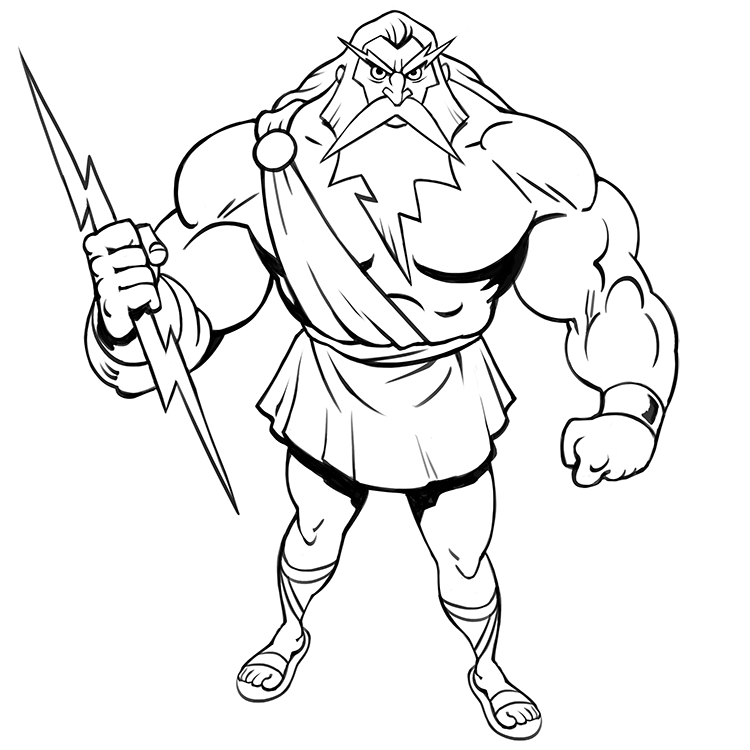
Zeus
Zeus was the mightiest of all Greek gods. He had a fierce temper and ruled with a stern hand. When challenged, he fought using powerful thunderbolts.
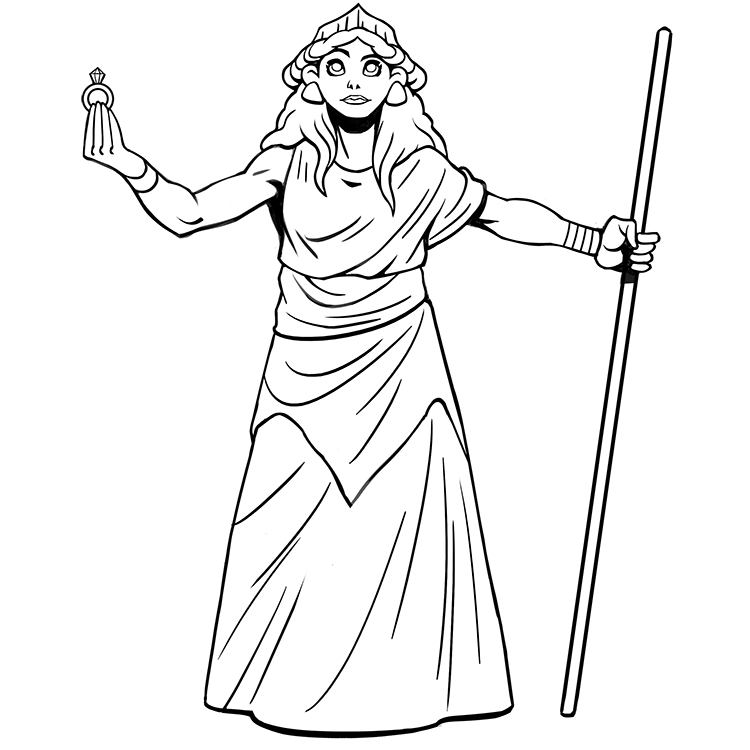
Hera
Hera was the wife of Zeus and queen of the gods. She was the goddess of marriage and birth. That was awkward because Zeus often had affairs with other women. Many of the stories about Hera concern her seeking vengeance against the people involved in these affairs.
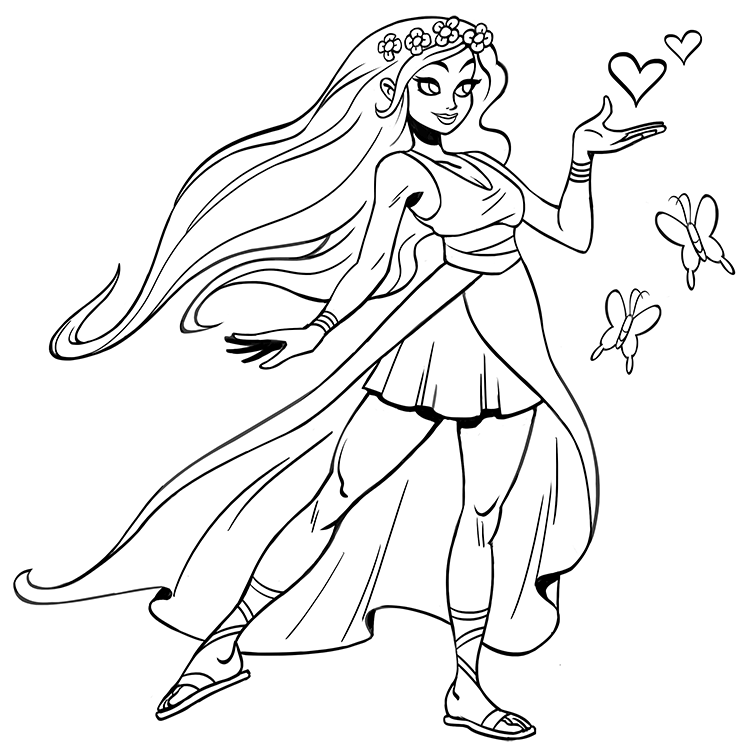
Aphrodite
The goddess of love and beauty, Aphrodite won a contest as the most beautiful of all the goddesses. Aphrodite’s son Eros carried on her tradition of supporting love. In fact, his Roman counterpart, Cupid, remains a symbol of love even today.
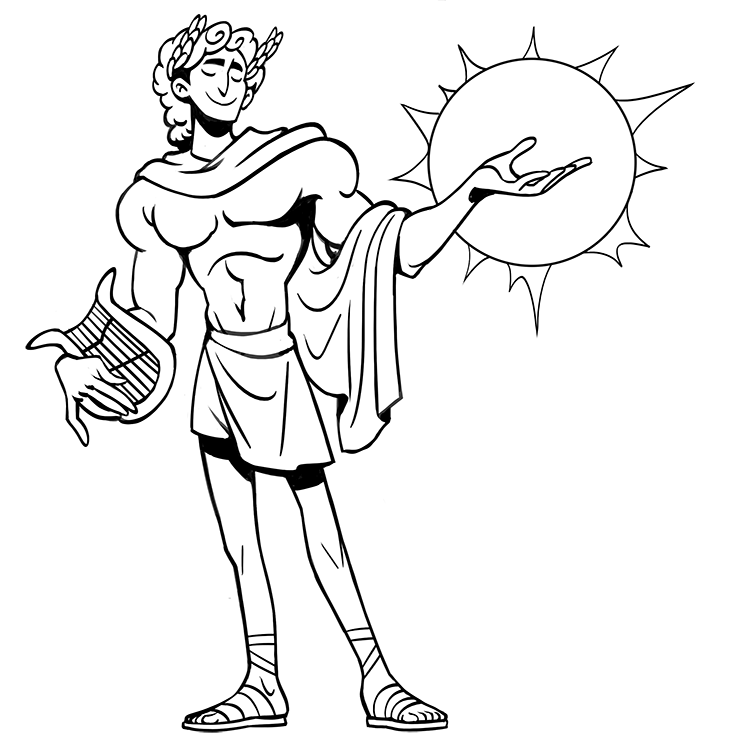
Apollo
God of the sun and light. God of music and poetry. A son of Zeus, Apollo was involved in many things. He led the Muses (nine goddesses that gave inspiration to artists and musicians). Apollo himself created beautiful music on a stringed instrument called the lyre. The Apollo space program was named after him.
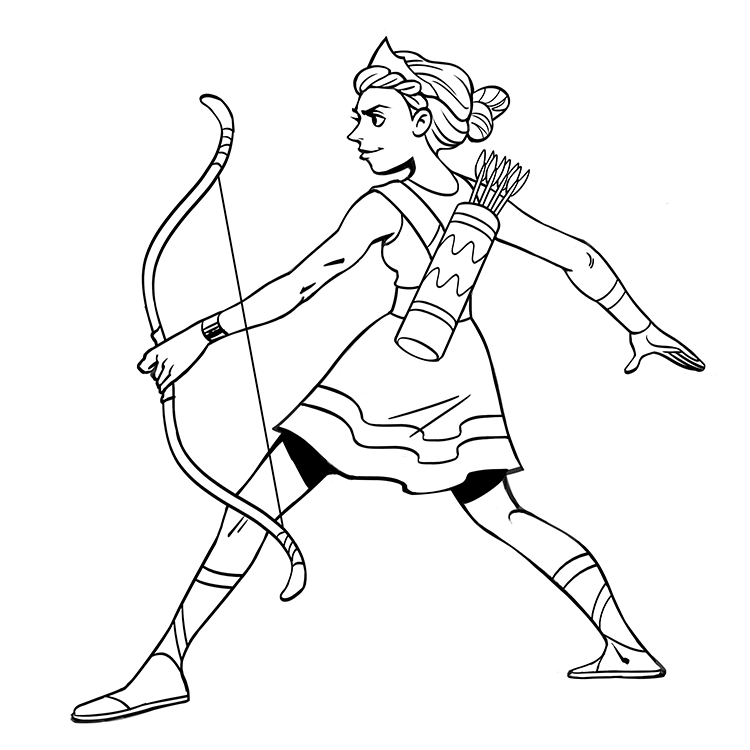
Artemis
Apollo’s twin sister, Artemis was the goddess of wildlife and of hunting. She also protected young children and women during childbirth. Paintings of her usually show her carrying a bow and arrow.
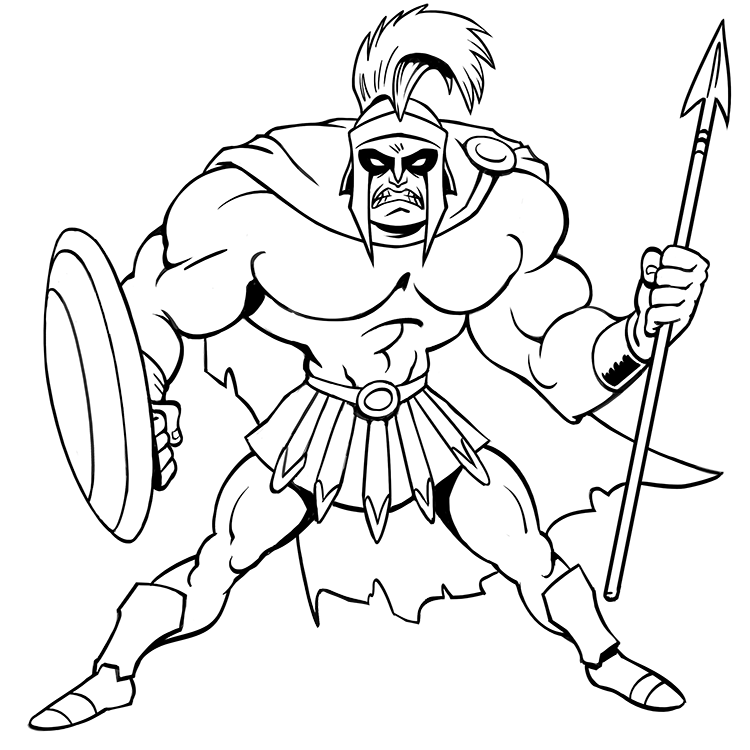
Ares
A son of Zeus and Hera, Ares was the god of war. Sculptures portrayed him as fierce and uncontrolled. For that reason, many Greeks had mixed feelings about him. They were further upset that he fought with the Trojans against the Greeks during the Trojan War.
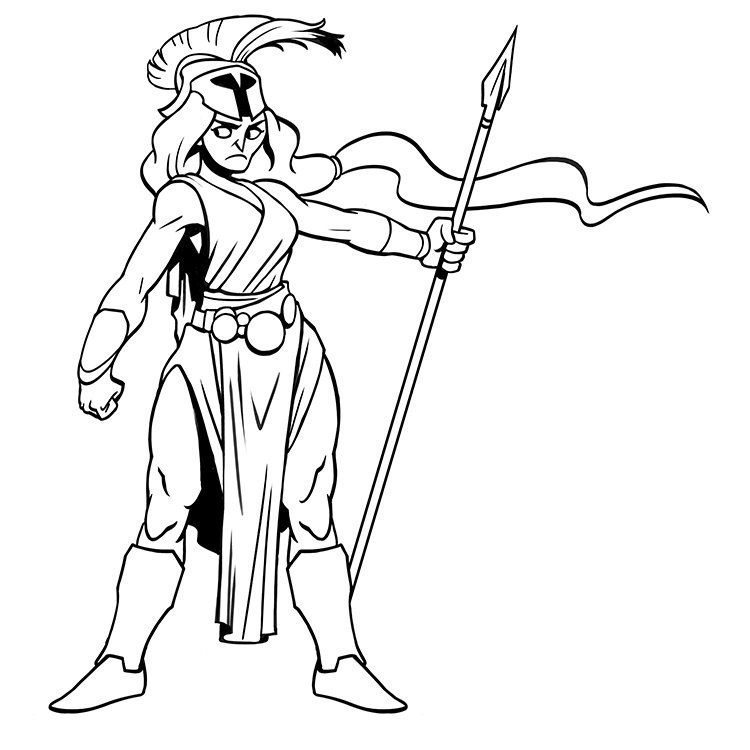
Athena
A daughter of Zeus, Athena was the Greek goddess of war and protector of the city of Athens. The famous Parthenon temple was dedicated to her. Athena had many other roles as well. She was the goddess of wisdom and courage. She supported law and justice.
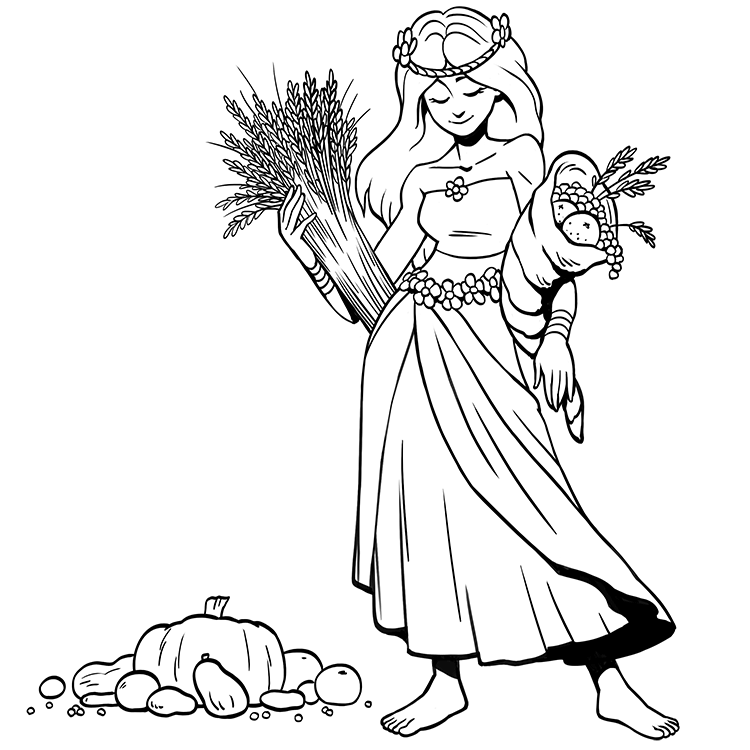
Demeter
Demeter was the goddess of the harvest. According to Greek legend, Hades kidnapped her daughter Persephone and carried the young woman to the underworld. Consumed by grief, Demeter no longer cared for the crops, which began to die. Finally, Hades agreed to let Persephone spend part of each year on Earth. She still had to spend the other part in the underworld.
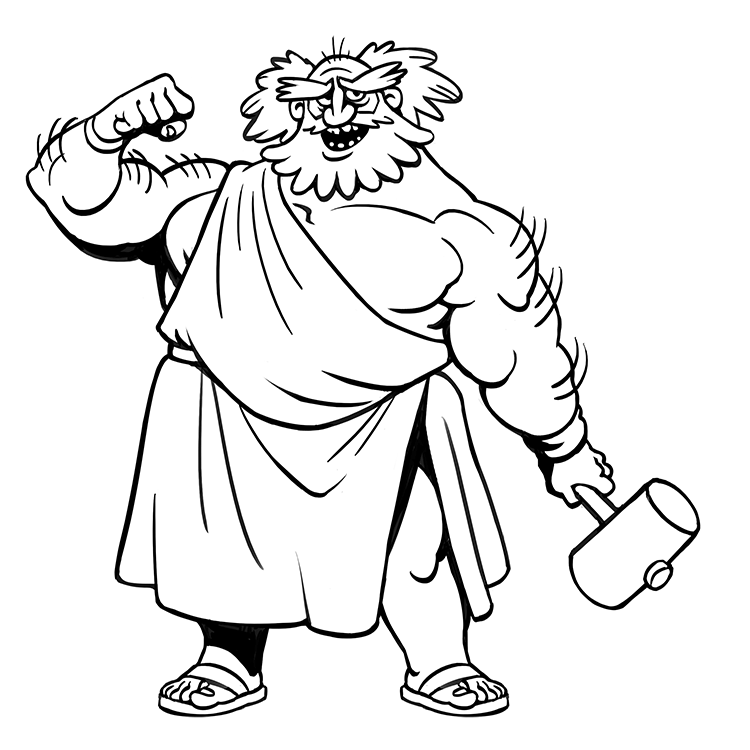
Hephaestus
Hephaestus served as the god of fire. One of the few Greek gods who wasn’t shown as having a perfect body, he was born lame. A master blacksmith, he made weapons for the other gods. His blacksmith shop was located deep inside a mountain. According to some legends, his work caused volcanoes.

Hermes
A son of Zeus, Hermes served as the messenger god. He also supported sports and athletes, and he protected travelers. He didn’t protect all travelers, though. One of his jobs was to escort the souls of dead people to the River Styx. From there, they were carried into the underworld.
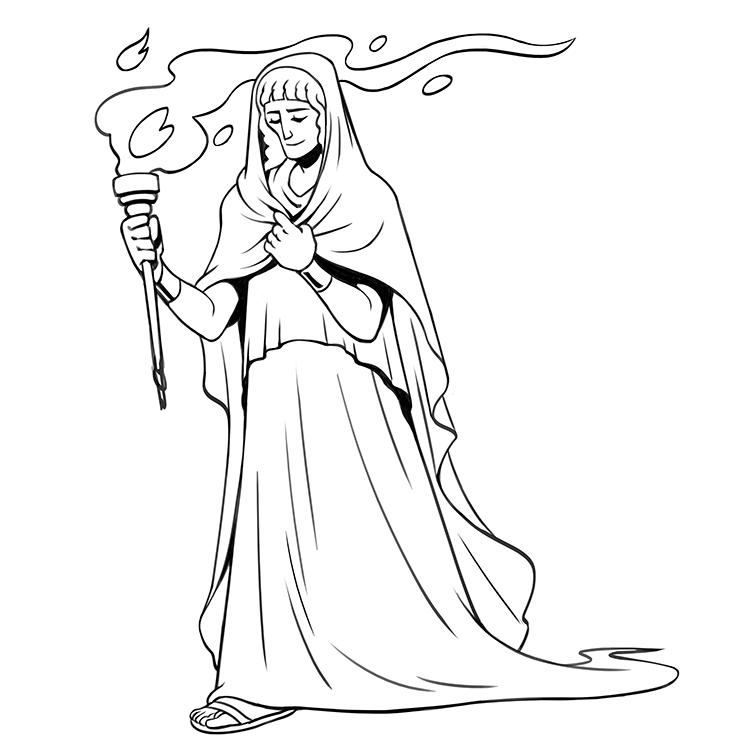
Hestia
The eldest sister of Zeus, Hestia was the goddess of home and family. She was also the goddess of the hearth fire that burned in almost every Greek household.
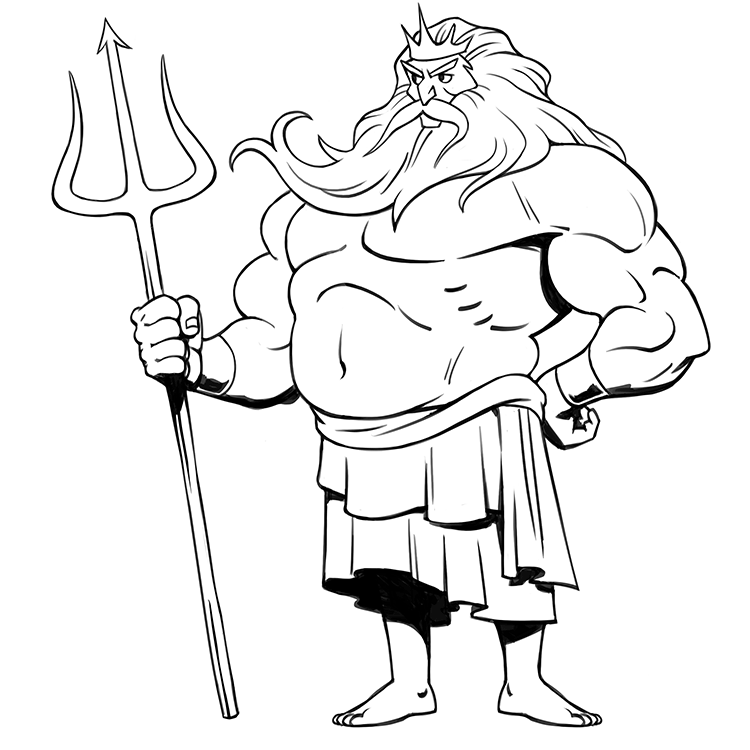
Poseidon
Poseidon was a brother of Zeus. He ruled the oceans, and he spent most of his time living underwater. Like Zeus, he was moody and could be vengeful. His favorite weapon was the trident. He used it to create thunderstorms and tidal waves.
Others
Several other gods and goddesses are sometimes connected with Mount Olympus. In some Greek tales, Dionysus (god of wine) and Tyche (goddess of fate) were also portrayed as Olympian gods. Although Hades was a brother of Zeus and Poseidon, he was not considered an Olympian god. As ruler of the underworld, he spent most of his time there.
Interesting note
The Greeks and Roman had similar gods but called them by different names.
Written by John Micklos, Jr.
